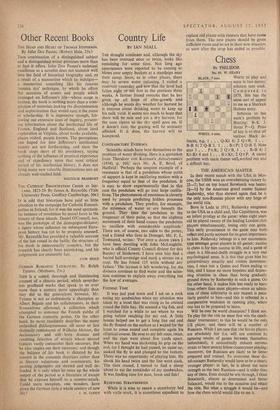GERMAN ROMANTIC LITERATURE. By Ralph Tymms. (Methuen, 25s.)
THIS is a sound, thorough and illuminating account of a chaotic period, which neverthe- less produced works that speak to us over more than a century more appealingly than they did to the generations between. Mr.
Tymms is not as enthusiastic a champion as Albert Beguin and his collaborators, in their Romantisme allemand, a collection which attempted to convince the French public of the German romantic genius. On the other hand, he more resolutely describes the many unfinished Bildungsromane, all more or less distinctly reminiscent of Wilhelm Meister, the declamatory and still- born dramas and rambling Miirchen of writers whose unread failures vastly outnumber their successes. But he also singles out their successes; and though the balance of his book is dictated by his interest in the romantic doctrines rather than in literary valuations and assessments, his passing judgements are shrewd and well de- fended. It is only when he sums up and_ whole output of the period as a literature of escape that he exposes himself to a counter-attack. Could mere escapism, one wonders, have given the German lyric a whole century of new


































 Previous page
Previous page